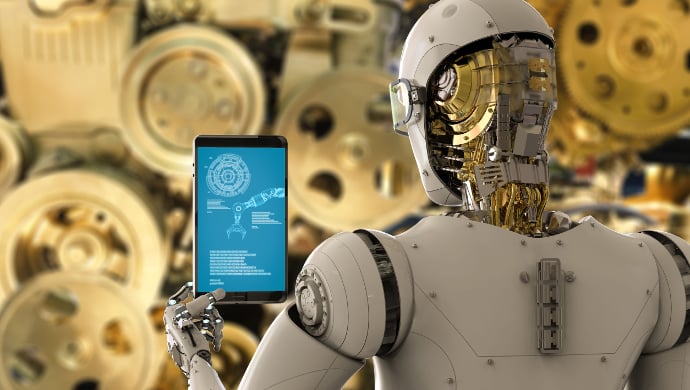Can artificial intelligence help produce better students and enable educators to be more effective

Education is slow to change. For example, the classroom model hasn’t changed much in centuries. Still, when it comes to technology, educators are quite willing to adopt new things. Many schools have already embraced emerging technologies such as virtual classrooms. Students are also accessing devices rather than opening textbooks at an increasing rate.
Of course, it would be nearly impossible to discuss technology and education without mentioning AI. Artificial intelligence is having an impact at all levels of education, both inside and outside of the classroom. Here are just a few examples of that.
AI will personalise educational paths for students
Imagine two students, who are both delivered slightly different versions of the curriculum based on data that has been collected from their past performance on tests, quizzes, and other school work. A study conducted by Rand Corporation confirms that such personalized learning indeed improves the individual performance. Students, who followed custom lessons plans performed by 3 percentile points above the median in maths and reading, when compared to peers who were taught based on standard curriculum.
Of course, this concept can expand beyond the classroom. Artificial intelligence can even help create recommendations for students as they select classes, even choose universities. For example, 1UNi, a Malaysian startup, uses an AI algorithm to help students find the best university for them. The algorithm leverages their achievements data, aspirations, preferences etc to “match-make” applicants with institutions where their skills will be properly developed.
AI will help educators focus on mastery, rather than mundaneness
In the classrooms that are yet to embrace personalized learning, bored students and students left behind are often the consequence of teaching methods that focus on time or completion. When instructors simply move on because they’ve covered the material, or they’ve spent a certain amount of time on a particular lesson, there’s no guarantee that all students have mastered the subject matter.
Instead, what often happens is that there are students who spend much of the time bored and frustrated because the instructor is covering what they have already mastered. Then there are the students who are left behind without having learned the material.
Also Read: Analysing the influence of artificial intelligence on the digital ad industry
With AI, it is possible to track student progress, and better understand what they know and what they don’t. For example an artificial intelligence based learning management system could take data from student tests and homework and provide information on which students have reached a predetermined and which have not. teachers can then customize their education plans accordingly.
For example, Third Space has launched a AI platform that aims to find positive teaching and learning patterns based on the accumulated data from some millions of maths lessons they have conducted. Their ultimate goal is to deliver real-time assistance to educators based on the cues displayed by learners.
Bots can revolutionise tutoring and customer service
Mention artificial intelligence and many people think of all sorts of bots. AI-powered bots can help students with all sorts of learning tasks. Picture someone struggling to complete their homework at home. A teacher may not be available to help them or explain a certain concept once again. Their parents may not have the skills required to help them complete an assignment. This is the perfect situation for an AI-based bot to provide frontline tutoring assistance.
A bot can ask a student a series of questions to assess their understanding of the subject. Once enough data is gathered, the bot could then provide answers, recommend additional sources of information, and otherwise give the student assistance. For example, textbook companies are already embracing AI. With the help of IBM Watson Education, a physical science textbook can turn into an interactive experience – students can either shoot questions about the text or respond to assessment questions posed by the system (with open-end responses).
Finally, AI can reshape education with its potential to impact educational policy on local, national, and international scale. Like any other industry, there are huge data sets of information that is relevant to education. AI makes it possible to mine that data, and make sense of it. These insights can then be used by those in power to help make better policies.
—
e27 publishes relevant guest contributions from the community. Share your honest opinions and expert knowledge by submitting your content here.
The post 3 ways AI and deep learning is now changing the education industry appeared first on e27.
Source: E27

